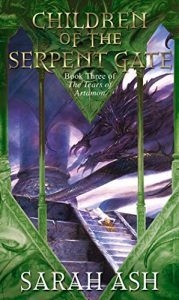Sarah Ash's Blog, page 11
December 11, 2016
Treasuring the Initial Image – a Guest Post for Melanie Ifield
I was so pleased when Melanie Ifield asked me if I would like to write a guest post for her blog as (telepathy!) planning to invite her to contribute to ‘Nobody Knew’. (She will be the guest writer on December 19th!)
You can read my guest post ‘Treasuring the Initial Image’ and learn more about Melanie Ifield’s novels for adults and younger readers too. (We share a keen interest in dragons!)
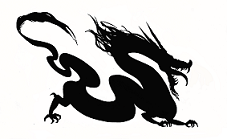
Please Feel Free to Share:







December 8, 2016
Thank you to Storm Constantine
Storm Constantine’s candid post ‘The Invisible Woman’ on the Guest Blog this week has generated much interest and sympathy from writers and readers alike. There’s much to celebrate, though, especially her latest book set in the Wraeththu mythos: Blood, the Phoenix and a Rose: An Alchymical Triptych and it’s been a great pleasure to be able to announce its very recent publication!
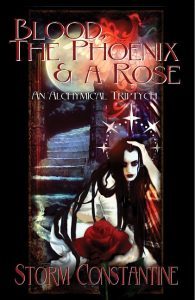
My next guest (December 12th) will be Jacey Bedford – do drop by to discover some excellent reading recommendations as she shares her thoughts on Too Many Books, Not Enough Time. (We can all relate to that!)
Please Feel Free to Share:







December 5, 2016
The Invisible Woman – Storm Constantine on the Guest Blog

It’s my very great pleasure to welcome Storm Constantine to the Guest Blog today. Storm’s first ‘Wraeththu’ trilogy made a tremendous impression on me (a truly magical discovery in Waterstones, Bromley!) and I have loved her innovative fantasy fiction ever since. So it’s exciting and heartening to share the fact that she has a new book out and to read how she has emerged from the travails of traditional publishing and established a successful imprint of her own at Immanion Press…
Please Feel Free to Share:







The Invisible Woman by Storm Constantine
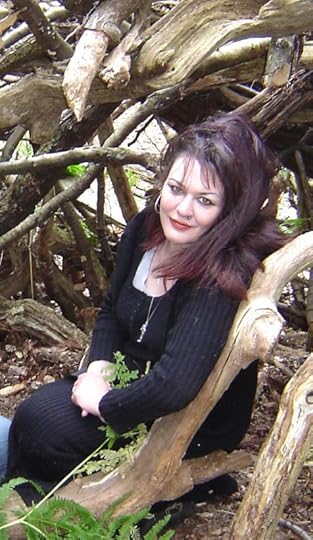
When Sarah told me the original name of her blog was ‘Nobody Knew She Was There’, concerning the ‘invisibility’ of women within genre writing, I felt a surge of recognition, of kinship. Originally, I started up my publishing company, Immanion Press, because of this very notion – I felt I’d been thrown at the publishing wall, along with many other writers, and hadn’t stuck in the right way. I’d slithered down it and could no longer even be seen.
Here is my story.
I had a strong start to my writing career, when Macdonald, a now defunct publishing house, bought my first Wraeththu trilogy, starting with ‘The Enchantments of Flesh and Spirit’. The books were fairly ground-breaking back in 1985, focusing as they did upon an uncompromisingly androgynous race who inherits the world from humanity. I didn’t shy away from sexuality within the books, which wasn’t exactly a common feature of fantasy back then either. Fluidity of gender has become a far more mainstream idea than it was in the 80s. In some ways, I was writing ahead of my time, and in keeping with other authors who’ve done that, there was a cost. My ideas were not comfortable for some readers, and for that reason the books were never going to be runaway best-sellers. But I didn’t even think of that in the beginning. All was wonderful. I had well-known and respected editors behind me, such as Richard Evans and Toby Roxburgh, who assured me I had a rosy future. And for a while it did feel that way. But once the honeymoon was over, reality kicked in. The industry changed, as did those who worked within it, and it wasn’t so much about books and authors any more, merely money. Editors were no longer as free to take chances with unusual books.
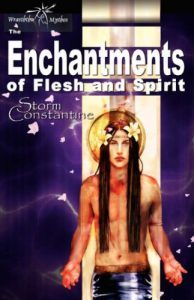
I struggled with the UK publishing industry for nearly two decades. I became almost craven, seeking the approval and acceptance of editors with power, having to move around publishers because I became known as an author who didn’t sell well. Even once contracts were secured, I had to put up with things that many other authors did. Publicity and marketing were almost non-existent, yet I felt as if it was my fault when a book didn’t perform as well in the market as the company demanded. I wasn’t the only author suffering this way; conversations with others confirmed I wasn’t alone. But it was incredibly disheartening and, for some, too much to bear. Also, SF, fantasy and horror novels were the ‘poor relations’ of literature, rarely taken seriously by reviewers outside the genre niche. So authors had to compete for pieces of a much smaller pie than that available to mainstream writers. I came to believe that, to publishers, genre writers were simply essential nuisances and were expendable. After all, there were so many of us, all desperate to be published, clambering over each other’s cold, dead faces to reach an ever-retreating light. There was no easy avenue to self-publishing in those days, and independent presses weren’t as accessible or numerous as they are now. I imagined mid-list authors (as the non-best-sellers were politely referred to) might as well be kept chained in a cellar, churning out work, until we were too feeble to carry on, when we could then be expelled into a cold world to fend for ourselves, no longer of any use at all. And in a way I did see this – talented writers who simply gave up, put down their pen and turned away from that which had once sustained them.
Enormous screw-ups happened with my early work, such as when the hardback of my second novel suffered because of a computer glitch at the storage warehouse. It was listed as ‘out of print’ when in fact the warehouse was full of copies. A friend who worked at a bookshop discovered this for me when they tried to order the title. When the book inevitably didn’t sell as well as the first, it was decided that the hardback of the third novel in the trilogy would be cancelled. (Fortunately, this was taken up and saved by Rog Peyton’s ‘Drunken Dragon’ small press.) After this experience, I was told emphatically I should not write any more Wraeththu novels, as they would never be best-sellers. So I invented new and different worlds, which wasn’t an entirely bad thing, as it enabled me to work upon my craft and to stretch myself. But there were always hoops to leap through, concerning what was ‘in’ – vampires, vampire westerns, doorstop epic fantasies, slim novels, hard sf… to remain published you felt you had to conform, no matter what your muse might be screaming at you!
I basked in a brief, idyllic period being published by the newly-created Headline, set up by editors from other 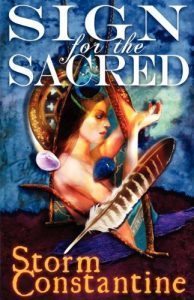 publishers who wanted to have an author-friendly company. I worked with the wonderful editor, Caroline Oakley. Then Caroline moved on to a new job elsewhere, and eventually Headline became like all the rest. Authors trooped into the cellar once more. After that, catastrophes continued to occur. Publishers wanted big sellers and nothing else – ‘safe’ books. If your books sold only modestly, you were dropped, because the mid-list had more or less gone. And within publishers themselves circumstances seemed tense. After heads rolled at one particular company, and my editor was kind of ‘disappeared’, I called their replacement to ask if I could send her new work to look at. The answer was succinct: a simple, hard ‘no’. The phone was virtually slammed down on me. I found a home somewhere else for a while, writing an epic fantasy that was considered most likely to sell at that time. Then came the final straw, a tiny wisp that brought the camel to its knees.
publishers who wanted to have an author-friendly company. I worked with the wonderful editor, Caroline Oakley. Then Caroline moved on to a new job elsewhere, and eventually Headline became like all the rest. Authors trooped into the cellar once more. After that, catastrophes continued to occur. Publishers wanted big sellers and nothing else – ‘safe’ books. If your books sold only modestly, you were dropped, because the mid-list had more or less gone. And within publishers themselves circumstances seemed tense. After heads rolled at one particular company, and my editor was kind of ‘disappeared’, I called their replacement to ask if I could send her new work to look at. The answer was succinct: a simple, hard ‘no’. The phone was virtually slammed down on me. I found a home somewhere else for a while, writing an epic fantasy that was considered most likely to sell at that time. Then came the final straw, a tiny wisp that brought the camel to its knees.
In 2001, after fifteen years’ absence from the Wraeththu mythos, I decided to go back to it, because now I knew exactly what happened next. Readers had been nagging me for years to write more Wraeththu stories, its fandom had actually grown, and I knew the time was right to return to that world. As there was an eager audience waiting, I thought that the industry might be more accommodating now. I put synopses together for a trilogy, keen to write once again, but with greater skill and experience, within the mythos that had launched my career. My agent approached both UK and US publishers, and TOR in the States got back to me within a week to say ‘yes, please’. In the UK, an editor expressed interest in it quite enthusiastically, then went silent for a year, and no information could be clawed out of them. Eventually, my agent managed to get a response – the editor’s boss had said no. I didn’t sell enough books to warrant a contract apparently, even though the original Wraeththu trilogy was still in print in America through TOR (and still is, nearly 30 years since it was published). Things didn’t add up – I had a devoted readership who’d kept the Wraeththu mythos alive while (it felt to me) I’d not been allowed to write within it. I knew people read and liked my work. I received letters asking what I was writing, when was it coming out, and so on. And yet… The industry itself had no interest in me or building upon what I’d already achieved. I was not an ‘instant best-seller’, so therefore worthless – or so it seemed. To be perfectly honest, I don’t know how much my gender had to do with it. I’ve seen men treated equally dismissively by the industry – good writers too. I’ve published some of them. But perhaps women were never taken as seriously as men, at least in the 80s and 90s. As I have the freedom to publish my work outside the establishment now, and to work with other writers in this hallowed place, I’m not in the best position to comment upon how women are treated by the big publishers nowadays.
Anyway, to return to my story… Coupled with the difficulty of getting new work accepted in the UK, all my older novels were long out of print, with no hope of being reissued. Fortunately, advances within printing technology meant I could fight back, use the affordable print on demand, (or POD publishing), and start my own company. While I was waiting for an answer from the UK publisher, friends helped me initiate Immanion Press. Initially, this was purely to return my back catalogue to print, but then I discovered other writers whose own back catalogues were exiled, and I offered to reprint those. Eventually, this extended to new works. Ultimately, my second Wraeththu trilogy was published by Immanion Press in the UK, because no major UK publisher would take it. And it did very well for us. I suppose that ‘very well’ for a small press is somewhat different to what that means for a big faceless company, but still. It didn’t matter. My career hadn’t been made to stand against a wall to be shot.
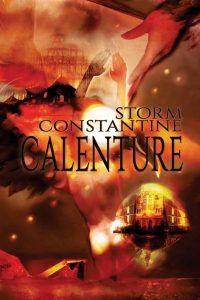 After a while, during which I still tried to sell new work to big publishers in the UK, and also to my publishers in the States, only to meet with disappointment, I realised I was stupid to put myself through that. I had an accomplished, firm-handed editor in Wendy Darling, who worked with Immanion Press, and who I trusted to be thorough and honest. I had a readership waiting. I had people who’d help me learn the skills required for professional book production. There was nothing to stop me going it alone, other than the faint niggle within, which whispered spitefully this was little more than vanity publishing – considered the most shameful thing in the world for serious writers. Had I really stooped to that? (This was long before the rise of self-publishing as a respectable venture.) I silenced the voice. If anybody out there should think or say that about me, it was irrelevant. The most important thing was that I could continue to be published and that the people who wanted to read my work could get hold of it. And, the most heady aspect of all, I’d have complete control. I wouldn’t ignore my own phone calls, or respond to mails with silence. I now had a boss who respected my work and – just as importantly – the time I put into it. I had a skilled editor who cared enough to be tough when it was needed. There was nothing to fear.
After a while, during which I still tried to sell new work to big publishers in the UK, and also to my publishers in the States, only to meet with disappointment, I realised I was stupid to put myself through that. I had an accomplished, firm-handed editor in Wendy Darling, who worked with Immanion Press, and who I trusted to be thorough and honest. I had a readership waiting. I had people who’d help me learn the skills required for professional book production. There was nothing to stop me going it alone, other than the faint niggle within, which whispered spitefully this was little more than vanity publishing – considered the most shameful thing in the world for serious writers. Had I really stooped to that? (This was long before the rise of self-publishing as a respectable venture.) I silenced the voice. If anybody out there should think or say that about me, it was irrelevant. The most important thing was that I could continue to be published and that the people who wanted to read my work could get hold of it. And, the most heady aspect of all, I’d have complete control. I wouldn’t ignore my own phone calls, or respond to mails with silence. I now had a boss who respected my work and – just as importantly – the time I put into it. I had a skilled editor who cared enough to be tough when it was needed. There was nothing to fear.
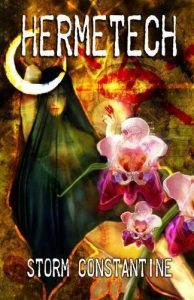
As time went on, I began to enjoy all aspects of book creation, so that the design became as important as the contents. Each new book was (and is) almost like a grimoire; magic permeates the whole artefact. I love creating books – for myself and others – working together to make each title special. Independent presses can do this because of course every book is special to us. We have to care about them as much as their writers do. The rise of the internet has helped enormously, of course. Genre writers no longer have to rely solely on the publicity muscle of big publishers. The independent presses – and self-published writers – can lavish care on new books. As long as they sell steadily over time, they can have a long life, with no risk of being remaindered after only a few months, or indeed being left for dead in warehouses having computer problems.
While there is a downside to publishing becoming a lot easier to accomplish, namely that work isn’t always edited to the professional level it should be, the upside is that writers have been liberated from big businesses that care nothing about them, unless of course they happen to be in the tiny top percent of writers who rake in millions. It seems books have become products for major publishers, no more than cans of beans with a rather short shelf life. Also, it seems to me that being published by a major house doesn’t necessarily mean your work will be polished and professional. A horror novel I read recently, published by a big company, and with cover blurb likening the author to very well-known names, was so badly edited as to appear barely edited at all. The grammar and syntax was poor; I had to reread some sentences and paragraphs a few times even to make sense of them – and this is from a fairly successful male author. I assume the book had been copy-edited too. By monkeys? Admittedly, there didn’t appear to be any typos in it; every glaring mistake had been left in deliberately, presumably by people who didn’t recognise them as mistakes. This was a great shame, as the story and themes were intriguing – the novel was let down by the unpolished writing. I was continually jerked out of the story by this, and yet even so I could see how easily it could have been fixed. (I suppose I was editing it in my head as I was reading.) I felt sorry for the author who’d been served so badly by this publishing company. As writers, we’re often blind to our own shortcomings, and good editors are there to guide us, to encourage us to work at our craft and improve. At least, that’s how it used to be, and I like to think that the editors of independent presses, who are often also the owners, designers and accountants, fulfil a role that big business no longer considers important.
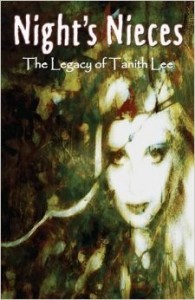 An article on this subject has to include the experiences of the late Tanith Lee – a writer who influenced a generation. Some authors began writing simply because they were inspired by her work. After having a very successful career, published by big houses in many countries, something peculiar happened to Tanith. The industry turned its back on her – one of the most important UK genre writers of all time – and it was up to independent publishers, Immanion Press among them, to support Tanith’s work and get it out there. If this can happen to a writer of such calibre and influence, it can happen to anyone, regardless of their talent. I’m sure many other writers who had auspicious starts to their writing careers can offer similar stories. This sad situation is common.
An article on this subject has to include the experiences of the late Tanith Lee – a writer who influenced a generation. Some authors began writing simply because they were inspired by her work. After having a very successful career, published by big houses in many countries, something peculiar happened to Tanith. The industry turned its back on her – one of the most important UK genre writers of all time – and it was up to independent publishers, Immanion Press among them, to support Tanith’s work and get it out there. If this can happen to a writer of such calibre and influence, it can happen to anyone, regardless of their talent. I’m sure many other writers who had auspicious starts to their writing careers can offer similar stories. This sad situation is common.
But, going back to the title of this post, the good thing is that people do know she is there, this invisible woman. Technology and social media have allowed us to make ourselves visible, and all writers who have tasted this freedom owe it to their work to maintain and improve upon its quality. Freedom should not mean sloppiness or lack of discipline within our craft. Detractors scorn writers who are published outside the citadel of big company names, often considering them inept and unprofessional. There’s only one way to avoid that accusation, isn’t there? Don’t be either of those things.

This week, my new novel is being published by Immanion Press. It’s in fact a trilogy of novellas, called ‘Blood, the Phoenix and a Rose’, Wraeththu stories with an alchemical theme. At the moment, I’m focusing upon writing all the Wraeththu tales I have inside me, or have scribbled down in note form over the years. This is mainly because reaching 60 recently has made me face that time isn’t limitless, so I must write what I most want to write. I’m not under any pressure to produce particular novels by editors frantically chasing the ‘flavour of the month’ in the industry. I continue to explore all aspects of science fiction, fantasy and the supernatural through my short stories. I may well write a horror novel in the future, or a science fiction story or an epic fantasy. But whatever I decide to do, the choice is mine. What bliss!
Storm Constantine is the creator of the Wraeththu Mythos, the first trilogy of which was published in the 1980s. She has written over thirty books, including full length novels, (including Hermetech and Burying the Shadow), novellas, short story collections and non-fiction titles, such as Sekhem Heka. Her latest book, a trilogy of Wraeththu novellas, Blood, the Phoenix and a Rose, was published in December 2016. Storm is the founder of the independent publishing house Immanion Press. She lives in the Midlands of the UK with her husband and four cats.
Please Feel Free to Share:







December 4, 2016
Too Many Books, Not Enough Time by Jacey Bedford
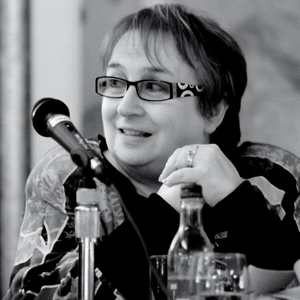
Apparently you can never be too rich or too thin, or so said Wallis Simpson,
Duchess of Windsor, however being neither rich nor thin my motto has always
been: “You can never have too many books.”
Except, perhaps, you can.
I’m not sure it’s possible to pin down the exact number of science fiction and
fantasy books published in any one year, especially if you count the proliferation
of self-published novels. The number rises again when you count SF books
written for youngsters, whether middle grade, YA or new adult. And since that
includes writers like Leigh Bardugo and Suzanne Collins then we should seriously
count them in because these books are not just for kids!
So I’m going to round the figures up, go out on a limb, take a deep breath, and
proclaim that there are a LOT.
I’ve done the maths. Take the number of books in my Strategic Book Reserve (it
long since grew out of being a to-be-read pile) and divide it by the average
number of books I read in a year. Now take my age and subtract it from (let’s be
generous) ninety. The answer is plain. Even if I never buy another book, ever, I
will not have time to read all my books in what remains of my lifetime. My annual
reading count is generally between fifty and sixty novels. Some years it’s been in
the thirties, though this year I’ve done particularly well and it’s already in the
nineties. I always have a book on the go. I’m only counting fiction, of course. I
don’t count most of the non-fiction I interact with. If I’m reading for research I’m
often not reading the whole thing from cover to cover, but cherrypicking relevant
sections.
How likely is it that I’ll never buy another book when I’m already looking forward
to the next Scott Lynch, Lois McMaster Bujold and Benedict Jacka? There are so
many books I want to read. And more books are being published daily (including
mine). So not buying any more books is – well, frankly – impossible.
I find it difficult to believe that any one person, even a professional reviewer with
nothing to do all day but read and review (does such a person exist?) can
possibly get a handle on everything that’s out there because of the sheer
freaking volume! So what chance does one beleaguered author have when she
has to squeeze in reading between bouts of writing (first drafts/edits/copy
edits/galley proofing). When it comes to the volume of books I feel as though I’m
not waving but drowning.
I couldn’t begin to give you an overview of publishing, even the small corner of it
that’s science fiction and fantasy. There are authors that I should have read, but
haven’t, and authors I’ve yet to discover.
One of the basic pieces of advice to writers is: read widely. Most of us don’t need
to hear that. We’re writers now because we were readers from an early age. I
write because I am essentially also a reader.
I fell into science fiction and fantasy abruptly at the age of eleven or twelve. Two
things happened. I ran out of the usual type of pony books in the local library,
and found C.S.Lewis’s The Horse and His Boy (my personal gateway into Narnia).
At the same time, through a school book club, I bought a paperback copy of John
Wyndham’s The Day of the Triffids. That was all it took, really. We moved house
that year, further out of town, and only had a mobile library service. Since they
had almost no books for young people, I began to read my way through all the
distinctive Gollancz yellow jacketed science fiction. I was way too young for most
of it and can barely recall what I read. Oh how I wish I’d kept a list.
In fact it took until 2009 to start keeping a list. The crunch came when I realised
that I’d probably only read about thirty books in 2008, or at least 30 that I could
remember, so from the beginning of 2009 onwards I started to keep a book log.
I write up each book I read, not so much reviews, but personal notes to my future
self, to keep the book in memory. I started to post my book logs to my
LiveJournal blog site, and to Goodreads. Nearly eight years later I’m still blogging
every fiction book I read, and though I have a writer’s blog at WordPress, I still
blog my reading at LiveJournal under the name of Birdsedge, along with my
movie-of-the-week pieces and an occasional personal rant. Why the two blogs?
Because I don’t review books professionally, I review them personally. I’m not
trying to produce an objective piece on what’s good or bad about a book, I’m
recording why I personally reacted the way I did to it. Your mileage may vary – in
fact, I hope it does. Every reader reads himself/herself into the text in some way.
I sold my first novel to DAW (USA) in 2013. Empire of Dust and Crossways are
the first two books in the Psi-Tech trilogy and I’m working on the third, Nimbus,
right now. It’s due out in October 2017. But at the same time I also have the
Rowankind trilogy on the go, historical fantasies set in 1800. Winterwood came
out in 2016 and the sequel, Silverwolf launches on 3rd January 2017.
Writing, honing my craft and spending some time in a critique group with other
writers, has given me a keen insight into the writing process, and it’s a good
book indeed that manages to draw me in to the extent that I cease analysing
what I’m reading and simply enjoy it for its own sake. I read mostly fantasy and
science fiction (probably in that order) and my guilty pleasure is historical
romance. Every so often I simply HAVE to read a Georgette Heyer Regency
romance. It’s the law!
So, bearing in mind that I’m only one person with too little time and too many
books, what have I read in the last few years that’s thrilled me?
Right off the bat I’ll state that my favourite author of all time is Lois McMaster
Bujold. I came to her books late, starting with The Curse of Chalion, which is still
the book I would grab as I rushed out of a burning building. I read all her
fantasies first, but it took me a while to come to her Miles Vorkosigan science
fiction books. I blame my friends. Each time one of them told me I would love the
stories featuring a stunted over-active little runt of a fellow with a huge chip on
his shoulder and a streak of genius, I thought, probably not. Then I picked up
Warrior’s Apprentice and I was hooked. I bought the Vorkosigan stories in their
omnibus editions and dropped out of the real world for a couple of months to
serial-read them all without coming up for air. Honestly, don’t take my word for
it. If you haven’t read Bujold’s Miles Vorkosigan books, do yourself a favour and
read them now.
Other favourite authors include: Patricia Briggs, Tanya Huff, Sherwood Smith,
Bernard Cornwall, Ann Aguire, Karen Traviss, Elizabeth Chadwick, Kari Sperring,
Jaine Fenn, Andre Norton and – from my childhood – Monica Edwards.
So what else have I tried and loved? Joe Abercrombie’s First Law Trilogy (The
Blade Itself, Before they are Hanged, and Last Argument of Kings.) Yes they
are grim. Yes they are dark, but they have a delicious streak of black humour
and humanity running through them that lifts them out of the mire. Abercrombie
can certainly write characters. They’re twisted, complex, and not at all nice, but
because of that, they are very human. You don’t really want to root for the
torturer, but you end up doing so anyway because he’s such a great character.
What else? Terry Pratchett goes without saying. I’m an unashamed Vimes fan
and still think that Night Watch is a masterclass in dramatic tension. More
recently I’ve raced through all of Jodi Taylor’s Chronicles of St Marys books
about a bunch of disaster magnets who work for an institute that sends
historians back in time to verify the facts about great moments in history. What
could possibly go wrong? Well, just about everything really. They are great fun.
Funny, but with high stakes. Highly recommended.
Also I recently discovered Leigh Bardugo. Her Grisha trilogy is good, but her Six
of Crows duo is superb. There’s an ensemble cast of characters led (or maybe
goaded by) by Kaz Brekker. Each one of the characters is complex in their own
right, but Kaz himself is a mishmash of conflicting emotions. Also Sean Danker’s
Admiral is an escape caper with a difference and a main character who is never
named.
New writers to watch out for include Genevieve Cogman whose Invisible Library
series is very promising, and new-to-me writers that I’ve thoroughly enjoyed
include Lisa Shearin, C.E.Murphy, and Scott Lynch whose Gentlemen Bastards
series grabbed me by the throat and wouldn’t let go. I’m eagerly awaiting the
fourth instalment, The Thorn of Emberlain.
I’ve come to enjoy boy-wizard books, well, not exactly boys and not always
wizards, but Jim Hines’ Libriomancer books featuring, Isaac Vainio, Benedict
Jacka’s Alex Verus series, and Kevin Hearne’s Iron Druid books with Atticus
O’Sullivan, the druid in question, have a lot in common with each other without
being carbon copies. They all have their own charms and collectively probably
owe a fair bit to the idea of Jim Butcher’s Harry Dresden.
What don’t I want to see more of? I won’t read anything with a six-pack torso of a
naked man (warrior/angel/vampire/demigod) on the front cover. Honestly if they
were showing female torsos we’d all be yelling about objectifying women. I also
avoid books in which somebody cute goes to visit a Scottish castle and is
plunged back in time to meet her own true love, a hunky Scottish laird. It worked
in Outlander (which I thoroughly enjoyed) but unless there’s a really good angle,
and some terrific writing, it’s nor something I’m generally going to go for. Ditto
contemporary ‘chosen one’ stories. I love Buffy the Vampire Slayer and
everything Joss Whedon—he’s the master of the one-liner—but I don’t need
carbon copies. And the best farm-boy-makes-good story has already been done.
It’s hard to beat The Princess Bride.
What am I reading and writing now?
I’m currently writing Nimbus, the third Psi-Tech book. It’s got greedy
megacorporations which hold implant-enhanced psi-techs in thrall while they
plunder (sometimes legally, sometimes not) along the galactic trade routes. Ben
and Cara went rogue, saved a colony and were elevated to the top of the
galaxy’s ‘most wanted’ list for their trouble. They fled to Crossways, a breakaway
space station supposedly the centre for every criminal activity imaginable, and
formed the Free Company, but in the aftermath of a megacorp attack on the
station they are currently gathering resources for the next fight – the big one
that’s bound to come. Except… something is stirring in the depths of foldspace,
something that might change everything.
Yes, you’ve guessed it, I’m writing a space opera. So I have to read something
that’s totally different. I’m currently in the middle of Julia Quinn’s The Viscount
Who Loved Me. (I told you historical romance was my guilty secret, and Regency
romance even more so.) Quinn’s characters are vivacious and funny, and she
handles the period with a light touch. It’s fluff, but it’s good fluff, just the thing
for when my mind also needs to be on epic space battles and enigmatic aliens.
Because publishing wheels grind slowly I’m working one book ahead. There’s one
book just out, one completed and due out soon, and another at the first draft
stage. My next book to be published is Silverwolf. It’s my second Rowankind
book. Winterwood and Silverwolf follow the adventures of Ross (a female
privateer captain and witch) and Corwen, (a wolf shapechanger). In Silverwolf
they try to deal with the consequences of freeing the rowankind from bondage to
humans. The setting is 1801. Mad King George is on the throne and Napoleon is
knocking at the door. The industrial revolution has begun and the gentle
rowankind have to decide between fleeing to the magical lands of the Fae, or
trying to make a place for themselves in the real world. Expect magic,
adventure, piracy and a touch of romance.
Happy reading.
Jacey Bedford lives behind a keyboard in deepest darkest Yorkshire with her
husband, Brian, and a black German Shepherd called Eska. (That’s a dog, not an
actual shepherd from Germany.) She’s had short stories published on both sides
of the Atlantic in magazines and anthologies, and (so far) three novels. (The
fourth is out on January 3rd 2017. She’s in the middle of a five book deal with
DAW in the USA, her dream publishing house. She’s the secretary of Milford SF
Writers Conference, an annual writing event for SF writers in the UK. She spent
twenty years as one third of a cappella harmony trio, Artisan, singing her way
round the world, and still works in the music industry as a booking agent for folk
musicians. She can ride a horse, make soup from six iron nails (as long as they’re
magic), and write a passable web page, but she’s terrible at numbers, and
believes life’s too short for housework.
Web: http://www.jaceybedford.co.uk
Twitter: @jaceybedford
Facebook: https://www.facebook.com/jacey.bedfor...
Milford: http://www.milfordSF.co.uk
Writer blog: https://jaceybedford.wordpress.com
Personal blog (as Birdsedge): http://birdsedge.livejournal.com
Please Feel Free to Share:







December 2, 2016
Storm Constantine writes for the Guest Blog!
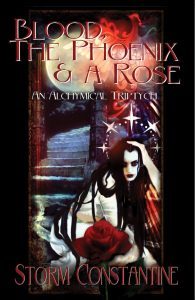
December’s Guest Blog is a bumper one with three very different writers: Storm Constantine; Jacey Bedford and Melanie Ifield contributing three very different but uniquely fascinating posts that you won’t want to miss!
Back in the 80s, three female writers from the UK came to the fore: Tanith Lee, Freda Warrington and Storm Constantine. When I discovered their novels – a real coup de foudre – I realized that it was possible to write fantasy that was not Tolkien-influenced but instead something genuinely ‘rich and strange’. So, it’s with very great pleasure that I look forward to welcoming Storm Constantine to the Guest Blog on December 5th, all the more so as she launches her latest work: Blood, the Phoenix and a Rose: An Alchymical Triptych – three novellas set in the wonderfully unsettling Wraeththu mythos.
Please Feel Free to Share:







December 1, 2016
Emperor of the Fireflies Available in e-book format!
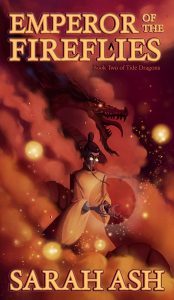
Emperor of the Fireflies – the second book of Tide Dragons – is now available as an e-book!
If you’ve enjoyed reading manga about kitsune (fox spirits) an onmyouji (wielder of arcane arts) and his shikigami (magical servants) then why not try this tale of two young men enslaved by an ancient family sacrifice-curse?
Click on the title to find out more – and to link to Amazon and other distributors.
Please Feel Free to Share:







November 17, 2016
John Howe’s Amazing Cover Art for the Artamon e-Books.
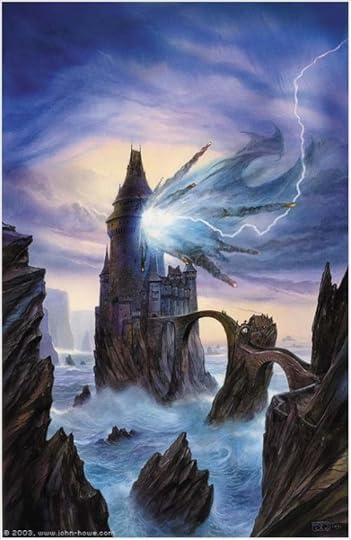
If you like the artwork, you can find out more about the amazing John Howe and his cover art – not just for the Artamon books, but for many titles by my favourite authors Robin Hobb and J.R.R. Tolkien. It’s been an honour to be included alongside such august fantasy company. So if you like the cover art, do visit John Howe’s website where you can learn more about how he works; it’s fascinating!
This is the back cover art by John Howe from Prisoner of Ironsea Tower, Book 2 of The Tears of Artamon ; this and the front cover (above) is probably my favourite artwork for the three books…although it’s really difficult to choose!
http://www.john-howe.com/portfolio/gallery/details.php?image_id=3269
The UK Artamon e-Books are now available on the Kindle and also on i-Books:
https://itunes.apple.com/gb/book/lord-of-snow-and-shadows/id1173139822?mt=11
https://itunes.apple.com/gb/author/sarah-ash/id420341872?mt=11
Please Feel Free to Share:







November 12, 2016
November on the Blog…
My most recent guest author has been T. Frohock: do check out her helpful thoughts on plotting – and do also check out her most recent book ‘Los Nefilim’! It’s been a pleasure to host her contribution here on the blog.
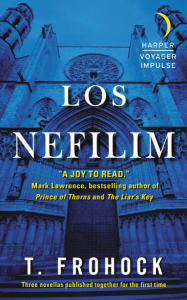
Before that, author and artist Anne Nicholls shared some fascinating ideas about creativity.
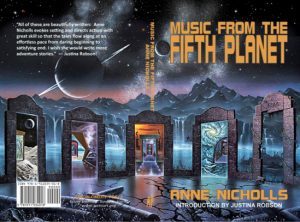
Coming soon to the Guest Blog is Jacey Bedford!
Please Feel Free to Share:







November 10, 2016
The Tears of Artamon Trilogy Available as E-Books in the UK!
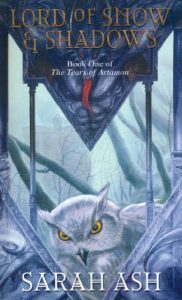
Three kingdoms. One man.
A destiny written in blood.
An epic fantasy series begins . . .
Lord of Snow and Shadows and its sequels Prisoner of the Iron Tower and Children of the Serpent Gate are now available as e-books in the original UK editions!
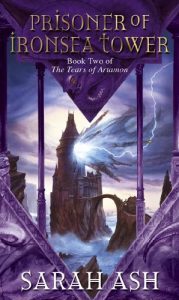 Seemingly always the outsider, Gavril Andar – an impoverished young painter – yearns to join the privileged circles of Muscobar polite society. However, unbeknownst to him, he does have royal blood in his veins: the dark and powerful blood of a father he never knew – the Drakhaon, ruler of the isolated northern kingdom of Azhkendir. And when the Drakhaon is brutally murdered, an unwilling Gavril is forced to take up the mantle of both his father’s rule – and his power. For blood will out. And the Drakhaon’s blood carries within it a taint that gives its bearer access to awesome, unimagined magics – but at a soul-shattering price.
Seemingly always the outsider, Gavril Andar – an impoverished young painter – yearns to join the privileged circles of Muscobar polite society. However, unbeknownst to him, he does have royal blood in his veins: the dark and powerful blood of a father he never knew – the Drakhaon, ruler of the isolated northern kingdom of Azhkendir. And when the Drakhaon is brutally murdered, an unwilling Gavril is forced to take up the mantle of both his father’s rule – and his power. For blood will out. And the Drakhaon’s blood carries within it a taint that gives its bearer access to awesome, unimagined magics – but at a soul-shattering price.